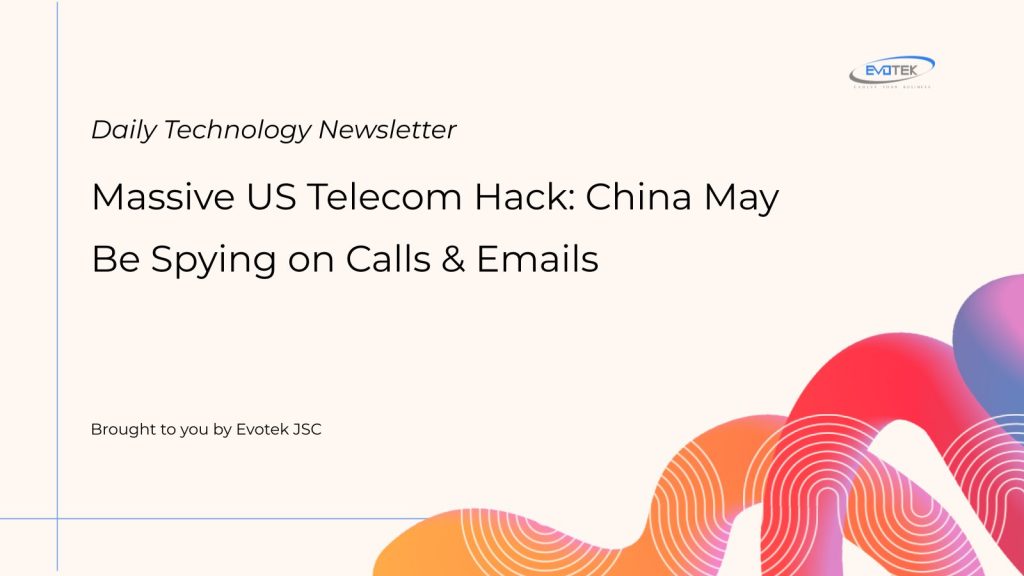A massive cyberattack, potentially the worst in US history, has compromised major telecom networks, leaving the door open for Chinese entities to monitor communications of US officials and potentially millions more. The breach, dubbed “Salt Typhoon,” highlights the catastrophic risks associated with backdoors in encryption and underscores the urgent need for stronger security measures.
Unprecedented Breach Exposes Vulnerabilities
US authorities are scrambling to contain the fallout from what is described as the most significant telecommunications hack ever to target the nation. The attack, attributed to Chinese state-sponsored actors, has penetrated deeply into the systems of major providers such as AT&T, Verizon, and T-Mobile, making complete eradication of the threat extremely difficult.
Scale of the Attack Staggering
Senator Mark Warner, chairman of the Senate Intelligence Committee, characterized the intrusion as “the largest telecommunications hack in U.S. history – by far.” He emphasized the immense challenge of removing the attackers, which could require replacing vast quantities of outdated network hardware. The hackers have reportedly been active for over a year, focusing primarily on intelligence gathering.
High-Profile Targets at Risk
The breach has potentially exposed the communications of high-profile individuals, including former President Donald Trump and staff members of Vice President Kamala Harris. The FBI has identified at least 150 direct victims, but the scale of the impact could be exponentially larger, as these individuals have communicated with countless others. The compromised systems also include those used by U.S. law enforcement agencies, raising concerns about potential exposure of surveillance operations.
Encryption: The Frontline Defense
Cybersecurity experts warn that the attackers utilized sophisticated tools, including a Windows kernel rootkit, to gain and maintain access. In response, U.S. officials are urging individuals and businesses to adopt end-to-end encrypted messaging and voice-calling services.
Jeff Greene, Executive Assistant Director for Cybersecurity at CISA, admitted the difficulty in predicting when the attackers will be fully expelled from the compromised networks. The vulnerability highlights the critical importance of securing communications with strong encryption.
Why End-to-End Encryption Matters
The inability to protect critical telecommunications infrastructure leaves sensitive communications vulnerable to interception and analysis. End-to-end encryption ensures that only the sender and receiver can access the content of messages and calls, providing a crucial layer of protection against eavesdropping.
Services like Signal and Tuta Mail offer end-to-end encryption, safeguarding communications from attackers and even the service providers themselves. In light of the ongoing breach, switching to these platforms is a vital step in protecting your privacy.
The Danger of Encryption Backdoors
This attack underscores the dangers of encryption backdoors. Creating vulnerabilities in encryption, even with good intentions, creates opportunities for malicious actors to exploit them.
End-to-end encryption, without backdoors, is the only way to guarantee privacy and security in the digital age, protecting individuals, corporations, and governments from malicious actors.
Lessons Learned: Prioritize Security
The Chinese hack serves as a stark reminder of the relentless nature of cyberattacks and the importance of robust security measures. Introducing backdoors to encryption would only exacerbate the problem, handing attackers the keys to sensitive data.
In an increasingly interconnected world, strong, unbroken encryption is essential. It’s crucial to resist calls for backdoors and uphold end-to-end encryption for everyone.

 日本語
日本語 한국어
한국어 Tiếng Việt
Tiếng Việt 简体中文
简体中文